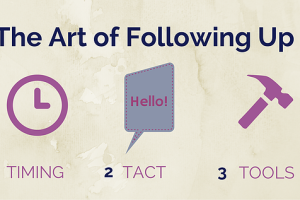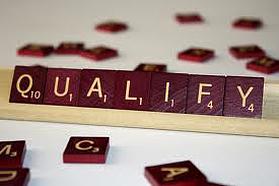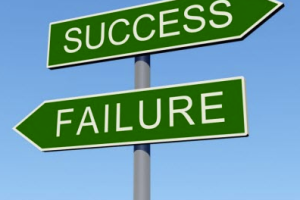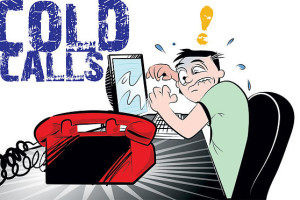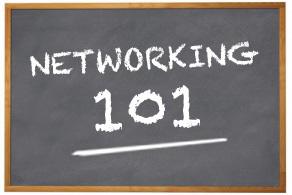The most valuable asset we have to offer our customers is our particular expertise in solving their problems. Others may have the same technology, but we have the superior application.
Others may offer the same service, but we do it better, with greater efficiency. Or perhaps we’re in one of those niche markets where the product we have for sale is our information and insight—strategic, consultative assistance with specific business or production obstacles that we have special experience in solving.
Whatever the case, when it comes time to pitch a prospective customer, we’re tempted to be very guarded about how much of our expertise we “give away” before asking to be compensated.
We’re reluctant to explain our processes in too much detail for fear that customers will find ways to implement their own solutions rather than contract for ours. On the surface of it, this seems like wisdom, but today it seems that some of the most successful companies are those who build their brand by being generous with their expertise.
So here’s a little food for thought when it comes to your company’s “information edge”.
Customers value honesty and candor.
Good salespeople recognize that customers are naturally going to be skeptical regarding their motives—especially when a sales presentation involves potentially complex information.
Customers don’t appreciate being “talked over” in a sales pitch, leaving them feeling manipulated on the basis of their ignorance. They expect vendors to fill in the gaps where their knowledge of a particular solution is insufficient—not necessarily as an alternative to paying for it, but as a means of making a more informed, confident buying decision altogether.
It may be that some customers, properly educated at that, will conclude that they really don’t need or cannot afford the solution you’re proposing (This is why asking smart questions and aggressively qualifying your prospective customers before investing your time in a detailed sales presentation is so important).
But, generally speaking, educated customers value a vendor’s willingness to be up-front and honest with them about what they know—even when it means giving away “free samples” of their expertise.
For one, it creates a sense of credibility for your company, revealing not only that you actually know what you’re talking about, but also that you’re a good “go-to” reference for future needs.
It permits you to respectfully show customers just how complex an issue really is, while proving that you’re “more than just a company”; when you say your priority is to help customers find solutions to their problems, you really mean it.
Customers aren’t as uninformed as you might think they are.
This is the Information Age, powered by the instant-access, virtually uninhibited content of the World Wide Web. Is it really wise for us to suppose that prospective customers and investors either can’t or won’t do extensive research well before they ever hear our pitch? Of course not!
So if they’re going to be looking for information before making a purchasing decision, wouldn’t it be smart for us to be the ones educating them?
Have you ever noticed the business practices of successful business?
I’ve found that some of the most successful companies routinely load their websites with value-added content aimed at educating prospective customers and only subtly pitching their particular product offerings.
This helps build trust, establish rapport and establish your thought-leadership in the industry.
If you’re wondering what kinds of value-added content your company might provide, it helps to start with the questions and concerns that lead most customers to you in the first place.
If you’re in the SaaS market, for instance, you might encounter customers who are not yet sold on the value of subscribing to software versus buying it outright.
A detailed educational piece on your company’s website about the advantages and disadvantages of the subscription model, aimed at helping customers decide which is most appropriate for their needs, might go a long way towards establishing your company’s credibility as a service provider.
Customers will pay for your expertise.
There is a wide gulf between knowledge and expertise, but it’s easy for us to confuse the two. Knowledge is the result of processing information: facts and figures, explanatory write-ups and demonstrations, etc. Expertise, on the other hand, is the skillful application of knowledge to real problems.
Whereas knowledge helps us understand a problem, it is our expertise that offers the solution; and customers will pay for solutions. We need to be sure that what we’re selling is not mere knowledge, but true expertise.
When you become proficient at understanding the difference of the two, you’ll find its easier to win customers when you can readily demonstrate how you’ve used your expertise to address problems just like theirs in the past, perhaps with previous clients or other organizations who allowed you to do a little work on their behalf for free, in exchange for their reference and testimonial. “That is what prospects find attractive—the fact that you can potentially provide…a way forward—rather than the fact that you are the fountain of all knowledge.”
But the counter turn is this…
Customers won’t buy if you just “give it all away” for free.
Always resist the temptation to get carried away when a customer responds positively to our attempts to woo them with great information. The key is giving them a few ideas, not all of them. It’s okay to let them know that…after delving further into their specific situation, you will come up with more ideas that are tailor-made for them.
There’s wisdom in helping your customers solve smaller, less vexing problems for free, since this may build your credibility and increase the likelihood that they’ll remember you when the “big one” hits.
But there’s no virtue in routinely giving your expertise away if the end result is that your customers never require any solution worth paying for.
(As a matter of fact, if you find yourself regularly facing this dilemma, you might take it as a sign that your business model needs to be retooled to offer something of more value in the Information Age.)
When it comes to business relationships, in recent years the playing field has been dramatically leveled in the customer’s favor. These days, we do well to recognize that our prospects are looking hard at all we have to offer them (and not just for what we have to sell).
Strategic marketing in the 21st century is therefore going to involve far more than creative advertising. It will require us to become “reference points” in our markets—key sources of information that customers will return to time and time again as they begin looking for solutions to new problems.
Learning the delicate art of sharing expertise is an important first step.


